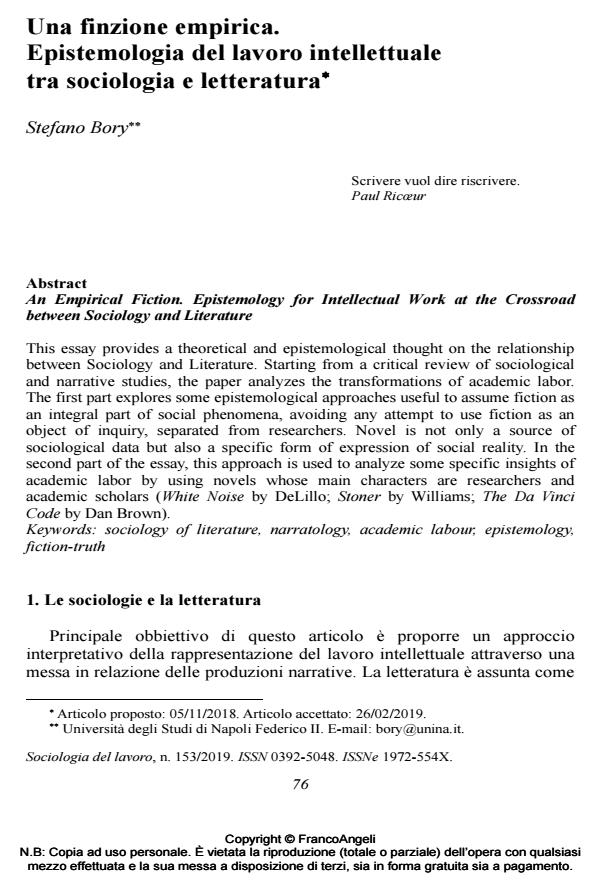An Empirical Fiction. Epistemology for Intellectual Work at the Crossroad between Sociology and Literature
Journal title SOCIOLOGIA DEL LAVORO
Author/s Stefano Bory
Publishing Year 2019 Issue 2019/153
Language Italian Pages 22 P. 76-97 File size 298 KB
DOI 10.3280/SL2019-153005
DOI is like a bar code for intellectual property: to have more infomation
click here
Below, you can see the article first page
If you want to buy this article in PDF format, you can do it, following the instructions to buy download credits

FrancoAngeli is member of Publishers International Linking Association, Inc (PILA), a not-for-profit association which run the CrossRef service enabling links to and from online scholarly content.
This essay provides a theoretical and epistemological thought on the relationship between Sociology and Literature. Starting from a critical review of sociological and narrative studies, the paper analyzes the transformations of academic labor. The first part explores some epistemological approaches useful to assume fiction as an integral part of social phenomena, avoiding any attempt to use fiction as an object of inquiry, separated from researchers. Novel is not only a source of sociological data but also a specific form of expression of social reality. In the second part of the essay, this approach is used to analyze some specific insights of academic labor by using novels whose main characters are researchers and academic scholars (White Noise by DeLillo; Stoner by Williams; The Da Vinci Code by Dan Brown).
Keywords: Sociology of literature, narratology, academic labour, epistemology, fiction-truth
Stefano Bory, Una finzione empirica. Epistemologia del lavoro intellettuale tra sociologia e letteratura in "SOCIOLOGIA DEL LAVORO " 153/2019, pp 76-97, DOI: 10.3280/SL2019-153005